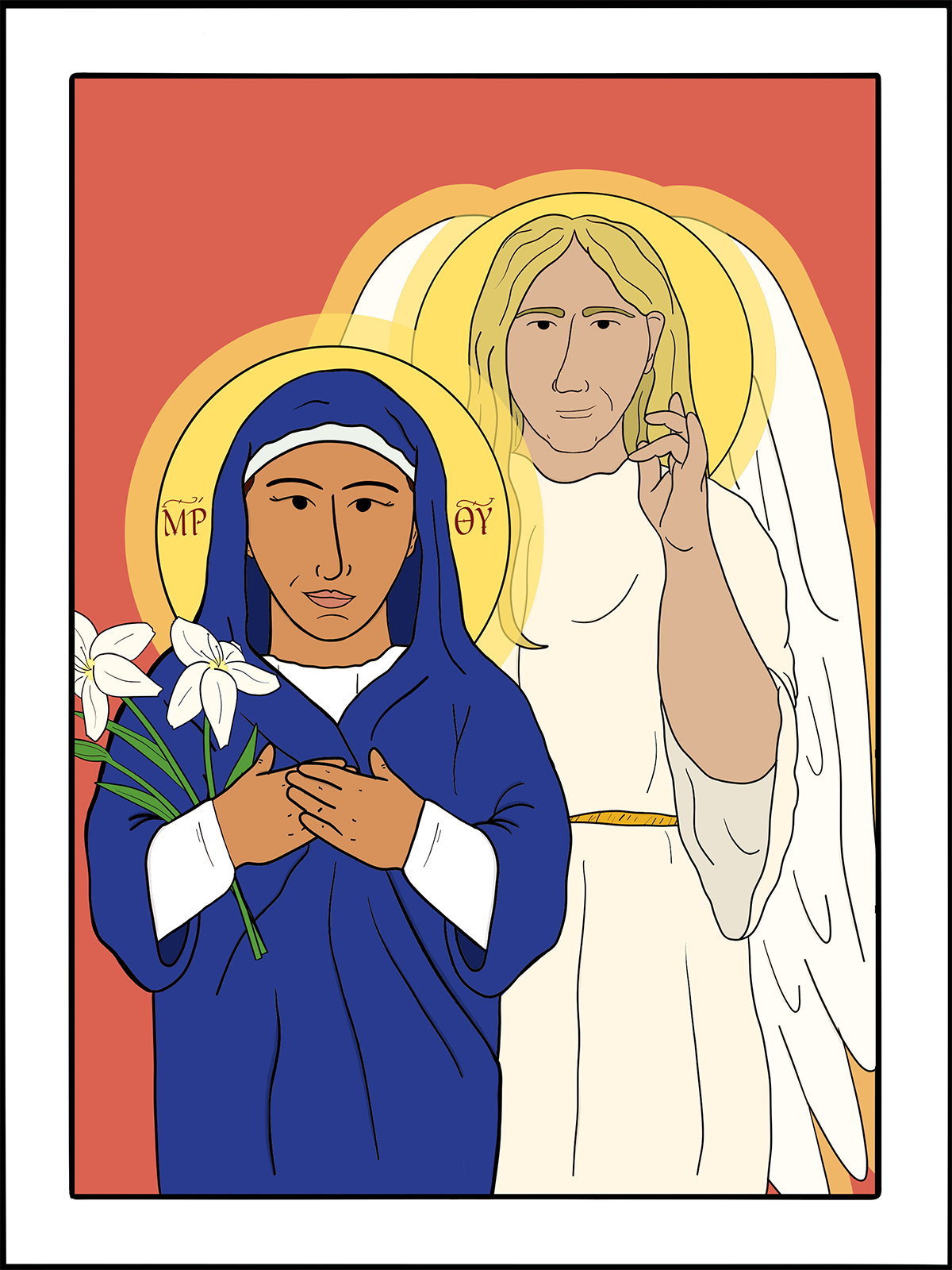
March 25
The Annunciation of Our Lord Jesus Christ to the Blessed Virgin Mary
art by Rev. Kirsten Kohr of UHRICHSVILLE, OHIOPour your grace into our hearts, O Lord, that we who have known the incarnation of your Son Jesus Christ, announced by an angel to the Virgin Mary, may by his cross and passion be brought to the glory of his resurrection; who lives and reigns with you, in the unity of the Holy Spirit, one God, now and for ever. Amen.
Today’s feast commemorates how God made known to a young Jewish woman that she was to be the mother of his Son. The Annunciation has been a major theme in Christian art, in both East and West, and innumerable sermons and poems have been composed about it. The term coined by Cyril of Alexandria for the Blessed Virgin, Theotokos (“the God-bearer”), was affirmed by the General Council of Ephesus in 431.
Many theologians stress that Mary accepted her vocation with perfect conformity of will. Mary’s self-offering in response to God’s call has been compared to that of Abraham, the father of believers. Just as Abraham was called to be the father of the chosen people, and accepted his call, so Mary was called to be the mother of the faithful, the new Israel. She is God’s human agent in the mystery of the Incarnation. Her response to the angel, “Let it be to me according to your word,” is identical with the faith expressed in the prayer that Jesus taught: “Your will be done on earth as in heaven.”
But while many Christians emphasize the submissiveness of Mary, according to the sixth-century Syriac writer Jacob of Sarug, the most important words that Mary spoke were not those of quiet acquiescence but rather, “How can this be?” Indeed, in Jacob’s account of the gospel encounter, Mary’s response is much more than a single question. Instead, a teenage girl takes on an archangel in a theological debate and freely consents only when she has been convinced that the angel’s word is true. In this interpretation, it is Mary’s eagerness to understand God’s plan and her own role in it that makes her exemplary rather than her meek consent. Jacob contrasts her behavior with Eve, who did not question the serpent that tempted her in the garden but uncritically accepted the claim that she and Adam would become like gods without testing it first. In Eve’s case, “lack of doubt gave birth to death” because she simply believed whatever she was told and “was won over without any debate.”
In both of these interpretations, however, our salvation is only possible because of Mary’s free cooperation with God in that salvation. It has been said, “God made us without us, and redeemed us without us, but cannot save us without us.” Mary’s assent to God’s call opened the way for God to accomplish the salvation of the world. It is for this reason that all generations have called her “blessed.”
Excerpted directly from “Lesser Feasts and Fasts 2022,” p. 154-155.
Lessons and PsalmIsaiah 7:10-14
Psalm 45 or 40:5-10 or Canticle 3 or 15
Hebrews 10:4-10
Luke 1:26-38
Preface of the Epiphany

